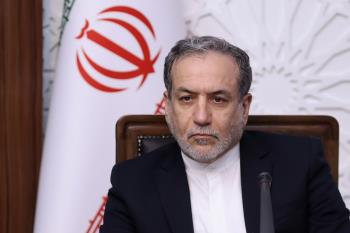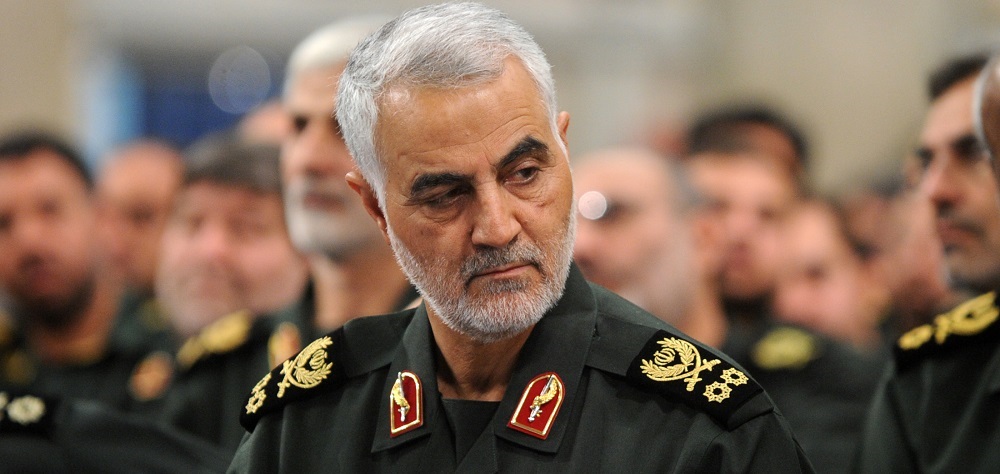Alwaght- The highly unwise decision and strategic mistake to assassinate the top Iranian General Qassem Soleimani and the deputy commander of Iraq’s Popular Mobilization Forces Abu Mahdi al-Muhandis will unleash both predicted and unpredicted consequences across the region afflicting the US and the Israeli regime prior to any other party having hands in the crime.
Taking such action despite knowing the danger that such an action means an act of war against Islamic Republic indicates how big was General Soleimani’s role in the failure of the US strategies in West Asia over the past two decades.
General Soleimani’s role in the Axis of Resistance
General Soleimani’s record of presence in eight-year Iraq-Iran war and commanding major operations made him an experienced commander. His fight against terrorists on the country’s eastern borders very well gave him the experience to tackle a wide range of foreign threats. Success in these experiences prepared him for even more complicated tests like the 33-Day Israeli aggression against Lebanon. His brave and inexhaustible spirit, alongside an acquaintance with asymmetric warfare, failed the military strategists’ predictions of victory for Tel Aviv changing the result in favor of Lebanese Hezbollah in the 33-Day war of 2006. He, accompanied by top Hezbollah commander Imad Mughniyeh, destroyed the modern Israeli warship Sa’ar with dozens of its crew during the Israeli aggression. The Israeli fury at the Iranian general was so big that Tel Aviv leaders decided to assassinate him using drones and warplanes in southern Beirut but failed.
General Soleimani was a pragmatic military man uninterested in media showoff. Following the ouster of Saddam Hussein and the massive US presence in Iraq, the Iranian interests faced a new threat from the inside Iraq. Since then, the top general began to extensively and closely watch the US movement to deter the threats. In 2007 and following a failed military operation against the Islamic Revolutionary Guards Corps’ Quds Force, the US for the first time mentioned General Soleimani in a statement.
But the biggest measure by the Iranian general was the frustration of the Western-Arab plots in the home Iraq and Syrian conflicts. When ISIS terrorist group sweepingly attacked Iraq and seized vast tracts of land, the Iraqi army all at once lost its strength to strike back. But Soleimani’s mastery of Iraq’s developments supported his agenda to reorganize the Iraqi army based on a popular approach. He, aided by 67 advisors, managed to obliterate ISIS and at the same time foiled the American conspiracies in Iraq. Many times, the American forces using a donation of the Iraqi skies tried to track the Soleimani-led anti-terror operations. They also airdropped logistics and arms to ISIS factions in Iraq. However, their struggle to check his successes went nowhere. He was first to declare the ISIS caliphate’s obliteration in Iraq and Syria. He also fought against the Iraqi Kurdish groups against the terrorist forces. His influence also worked well when it came to thwarting Iraq split plans.
In 2014, a Newsweek cover contained General Soleimani’s portrait with a caption that read: “first he fought America, now he’s crushing ISIS.” In Syria, too, he commanded all of the ground operations against a range of foreign-backed terrorist groups. Where the Western generals and forces did not dare to start a ground operation against the most barbarous terrorists in Iraq and Syria, it was the general who with a great military brave and genius turned the tide in favor of the Iraqi and Syrian forces. The success of the Russian Air operations in Syria was apparently on the strength of his military initiatives. Following the recapture of Al-Qassir town in 2013, John Maguire, a former CIA officer, said that the success in the operation was owed to Soleimani’s great military talent and efforts. The victory put the Syrian Arab Army on the track of taking back one after another the terrorist-held regions in the next years.
His previous experiences in the ground battles from eastern Iran to Lebanon to Syria and to Iraq marked him as the center of gravity of the Axis of Resistance. Even Hamas and Islamic Jihad of Palestine took advantage of his advice in their struggle against the Israeli occupation. Qassam Brigades, Gaza-based resistant factions, in a statement after his assassination said: “General Soleimani offered huge support to the Axis of Resistance and his key role in this course made him a target to the Israelis and the Americans.”
His martyrdom’s consequences
After Trump assumed the power, the White House stepped up its endeavor to undermine Iran’s role in the region. The size of the Resistance camp’s network was so big and bewildering to the US that Washington was practically unable to hit a specific point. Thus, Trump, who is known for his costless policies, mixed his approach with the element of speed and in a miscalculation sought to remove the general. The Americans hoped that the assassination of Soleimani and al-Muhandis will weaken the PMF and Kata’ib Hezbollah of Iraq. But this move largely backfired unleashing consequences to the US across the region, many of them unpredictable.
Iran’s National Security Council in a statement on Saturday asserted: “the criminals will face the tough revenge of the avengers of General Soleimani in the right time and place.” The first and most significant repercussion is the intensification of the regional peoples’ fury and sense of revenge against the American forces in the region. Just against other military leaders, Soleimani’s fame was not propagandistic. He kept away from the media. His popularity stemmed from his sacrifices to protect the Iranian, Iraqi, Syrian, Lebanese, and Palestinian people. The news of his assassination very fast became a media hit and trended on social media worldwide.
The Russian defense ministry referred to the positive role General Soleimani played in anti-ISIS fight stating that the American narrow-mindedness in assassinating the top Iranian general will intensify the crisis-hit political and military situation in the region and will have serious negative consequences to the international peace. Russian Senator Konstantin Kosachev described the situation “difficult” and a harbinger of new clashes between the US and Shiites.
From now on, Israeli security will be certainly facing serious risks. The Israeli political and military leaders are aware of these risks. Israeli Defense Minister Naftali Bennett said with regard to the current situation, Tel Aviv put its forces on high alert adding that Mount Harmon site near the Syrian border is closed to visits.
Qassam Brigades have announced readiness to launch retaliatory attacks. The most important sites at risk from now on are the American military bases across the region. Although the US continues to keep covert the details about the number of forces and equipment they accommodate, the IRGC-QF and its regional military arms are very well familiar with them. The US is greatly concerned about this. Following the attack, Secretary of State Mike Pompeo rushed to talk to the Russian officials on the assassination in a bid to reduce its consequences. Talking to Fox News on Friday, Pompeo said that the US is “committed to de-escalation” with Iran but is ready to defend itself.
Pompeo held talks with regional officials as he launched a campaign asking the hosting states to protect the American bases and forces in the region. But this does not appear to save the American forces.
Hashem al-Heydari, the Iraqi Hezbollah Brigades secretary-general, told the media that “our response to the crime will be wise and precise. Our retaliation will be not against one person because Hajj Qassem Soleimani was the symbol of the Axis of Resistance in its entirety. Akram al-Ka’abi, the chief of the Iraqi Al-Nujaba Movement asserted that “our pain from this crime will transform to fury and enthusiasm against our enemies.”
With the deep-rooted morale of the Axis of Resistance certainly high, the assassination of General Qassem Soleimani not only will not undermine the Resistance camp but also from now on its strategy will undergo a fundamental transformation making it more complicated and surprising, with its initial victims being the overseas units of the US military. So, in the near future, the American military’s backbones in the region will be broken.



























